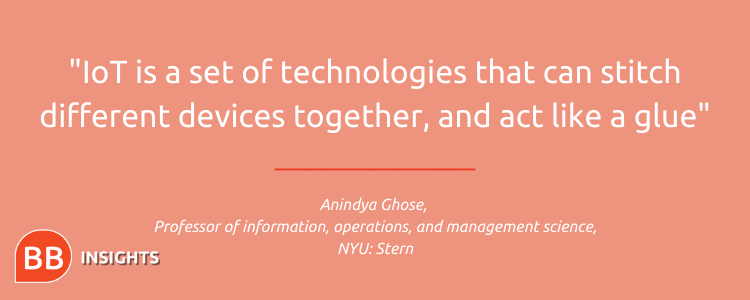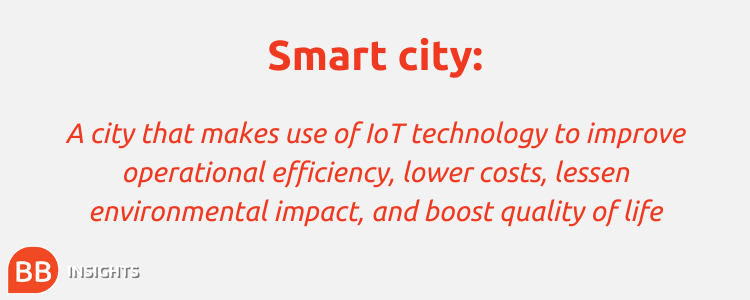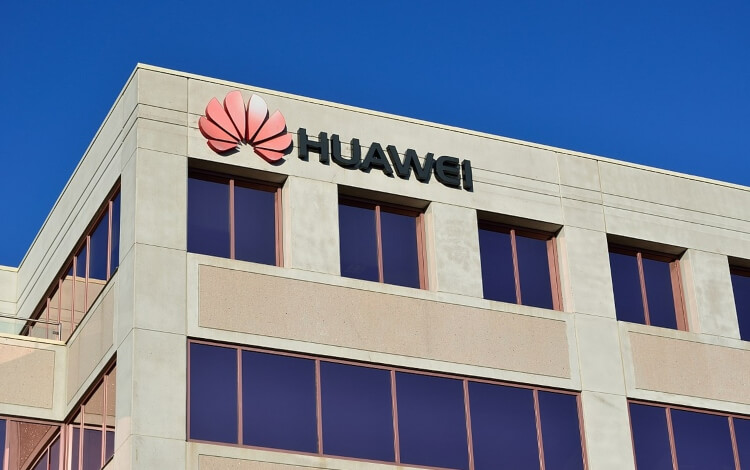The Internet of Things (IoT) depends on connectivity to function. Simply put, the IoT is a network of items connected to each other and, sometimes, a central network.
IoT devices currently depend on networks like WiFi or Bluetooth to share data, but as applications become more complex, faster networks will be needed to keep up—enter 5G.
In the UK, 5G rollout has been halting at best. The next generation mobile network, which is 10 times faster than its predecessor (4G), has been rolled out in major cities like London, Edinburgh, and Birmingham, but coverage is sparse, and new stumbling blocks are emerging.
The latest hurdle to 5G rollout is the UK government’s decision to ban network providers from using equipment produced by Chinese tech giant, Huawei, over security concerns.
In January, Boris Johnson’s government said Huawei would be allowed a 35% share of the UK’s 5G market, but new US sanctions against Huawei have triggered a costly U-turn, which is expected to slow 5G rollout significantly.
With IoT innovation so dependent on 5G coverage, what does the Huawei ban in the UK mean for IoT development?

How will the ban impact 5G rollout in the UK?
Estimates on just how much the Huawei decision will delay 5G deployment vary. Major UK networks like Vodafone, EE, and Three all currently use Huawei 5G gear, and replacing it is expected to cost around $2.6 billion (£2 billion).
“The UK government expects the delay to rollout will be three years, but that is probably an underestimate,” says Peter Williamson, honorary professor of international management at Cambridge Judge Business School.
Peter’s research interests include globalization, and the impact of Chinese internationalization.
“It could be delayed by as much as five years, with the risk that the UK loses its potential lead competitive advantage from early deployment of 5G,” he predicts.
Finding alternative 5G providers is not a simple task. The Swedish manufacturer, Ericsson, is one viable candidate, reportedly chosen by EE. Nokia, Cisco, and Samsung are also in the running. However, the equipment produced by these companies may not be as affordable as Huawei’s, Peter notes.
BT recently chose Nokia to replace its current Huawei 5G kit, meaning that the Finnish manufacturer will soon account for around two thirds of BT's mobile network kit.
Does IoT innovation depend on 5G?
The UK’s delayed 5G rollout could curtail advanced IoT developments, especially in automated manufacturing, and smart city applications.

“Much of the innovation in the IoT will depend on 5G, because it is key to everything from machinery, to infrastructure, to vans and cars, communicating with each other in ways that allow better coordination and increased efficiency,” says Peter.
According to a report from intelligence provider, Assembly Research, these lost efficiency gains could cost the UK economy $23.6 billion (£18.2 billion)—funds that could be invested in IoT innovation.

Huwawei headquarters, via Wikimedia used under this license
Dr Anindya Ghose, professor of information, operations, and management science at NYU Stern School of Business, agrees that 5G and IoT innovation are intimately tied. Anindya’s research often considers the impact of IoT technology on businesses and individuals.
“5G is laying the foundation for realizing the full potential of IoT,” he says. “Many 5G providers are already adding IoT value by facilitating ecosystem collaboration in smart cities.”
Although 5G infrastructure is crucial for IoT certain applications, it is not the only driving force in IoT innovation. “The UK’s decision about Huawei is certainly relevant, but it’s not the only issue,” notes Krsto Pandza, professor of strategy and innovation at Leeds University Business School, and director of the Center for Technology, Innovation, and Engagement.
Krsto points out that while 5G will be necessary for complex IoT applications like coordinating autonomous vehicles or carrying out robotic surgeries, many other applications are already possible using 4G networks. Traffic routing, fleet management, and domestic applications like smart lighting and fitness trackers are some key examples.
The other challenges to Internet of Things development
While delayed 5G rollout could hold back advanced IoT applications, like autonomous vehicles and manufacturing systems, Krsto emphasizes that other hurdles are equally prescient.
“The challenge here is one of collaboration between different players in the innovation ecosystem. How companies collaborate is going to determine what IoT applications will develop,” he says.
“There will be many other players involved [besides 5G providers] if we want to actually see these advanced IoT applications.”
Creating and operating autonomous cars is one area of IoT tech where this collaboration will be especially crucial. For the system to work, players including car manufacturers, software developers, cloud computing services, government regulators, and 5G network operators must figure out how to work in tandem.
This kind of collaboration could prove tricky if the UK follows the US’ lead in protectionist tech policies, turning away from foreign companies, warns Peter.
“[The UK’s Huwawei ban] is part of a worrying spasm toward protectionism, nationalism, and the abandonment of international cooperation led by the Trump Administration,” he says. “This turning inward would slow innovation and productivity growth.”
Despite these concerns, Krsto and Anindya remain optimistic about the future of IoT in the UK and Europe. Ericsson, for example, is already conducting research into how they can support IoT development. 5G is an important component, and Ericsson currently provides 5G networks in 32 countries.
“As a network manufacturer, they will not develop IoT technologies independently, but work with telecom operators and software companies so advanced IoT enabled services can materialize in the future,” Krsto explains. “That collaboration is happening.”
Read more BB Insights content:
Is Artificial Intelligence Biased?
How The Turmoil with TikTok Could Change The Course Of Big Tech
BB Insights explores the latest research and trends from the business school classroom, drawing on the expertise of world-leading professors to inspire and inform current and future leaders


